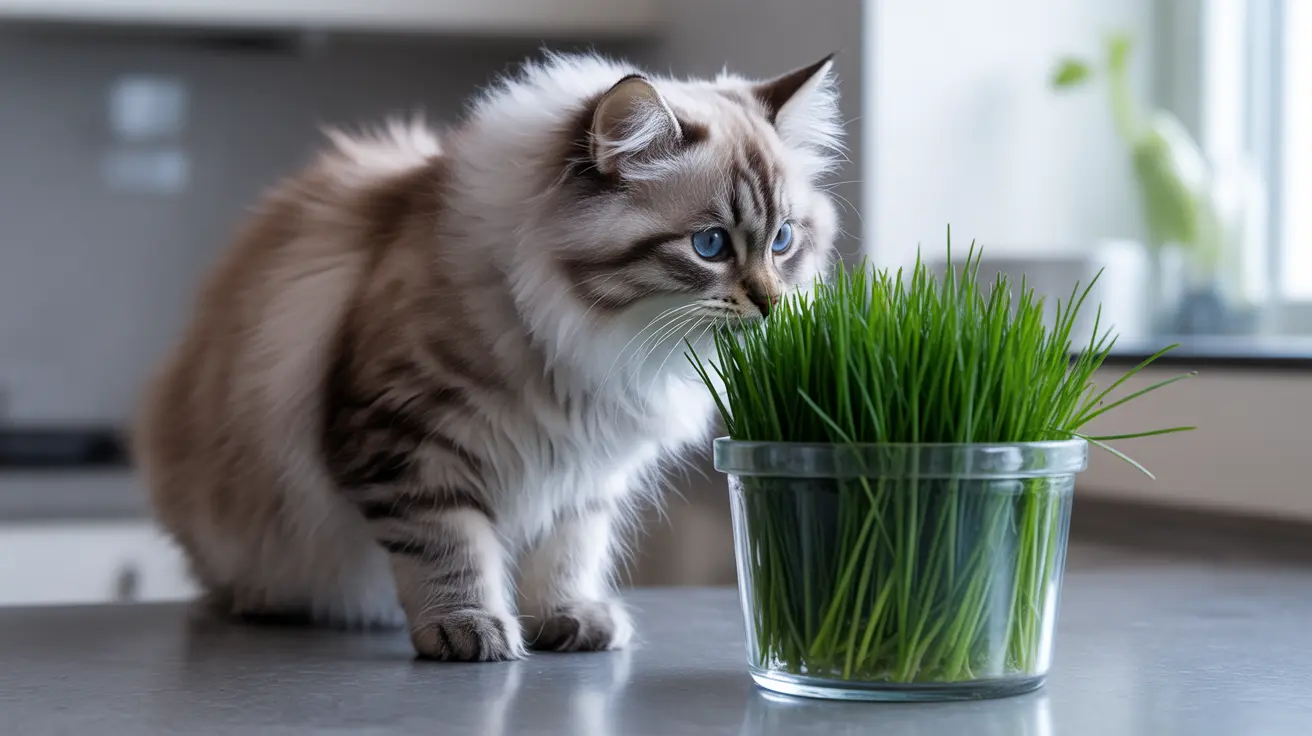Why Are Chives Toxic to Cats?
Chives contain dangerous compounds called organosulfoxides that are particularly harmful to cats. When a cat chews on chives, these compounds convert into toxic sulfur substances that can cause severe damage to their red blood cells. Cats are especially vulnerable to this toxicity because they lack the necessary enzymes to process these compounds effectively.
Even small amounts of chives can be dangerous, as cats are much more sensitive to Allium toxicity than humans. Both raw and cooked chives maintain their toxic properties, making all forms of this herb unsafe for feline consumption.
Symptoms of Chive Poisoning in Cats
Immediate Signs
- Vomiting
- Diarrhea
- Loss of appetite
- Drooling
- Oral irritation
Delayed Symptoms
The most serious effects often appear 3-5 days after ingestion:
- Pale or yellowish gums
- Weakness and lethargy
- Rapid breathing
- Increased heart rate
- Collapse (in severe cases)
Treatment for Chive Poisoning
If you suspect your cat has eaten chives, immediate veterinary care is crucial. Don't wait for symptoms to appear, as early intervention significantly improves the prognosis. Treatment typically includes:
- Induced vomiting (if ingestion was recent)
- Administration of activated charcoal
- IV fluid therapy
- Blood tests to monitor red blood cell counts
- Blood transfusions in severe cases
- Supportive care and monitoring
Prevention Tips
In the Kitchen
Take these precautions to protect your cat:
- Store chives and other herbs in secure containers
- Keep fresh chives in closed refrigerator drawers
- Clean cutting boards and counters thoroughly after food preparation
- Dispose of food scraps in secure trash bins
In the Garden
If you grow herbs:
- Keep chive plants in areas your cat cannot access
- Consider removing chive plants entirely
- Use cat deterrent methods around herb gardens
- Monitor your cat when outdoors
Frequently Asked Questions
Can cats safely eat chives or any foods from the Allium family?
No, cats cannot safely eat chives or any members of the Allium family (including onions, garlic, and leeks). These plants are all toxic to cats and can cause severe health problems.
What are the symptoms of chive poisoning in cats I should watch for?
Watch for vomiting, diarrhea, lethargy, pale gums, weakness, rapid breathing, and increased heart rate. These symptoms may not appear immediately and can develop over several days.
How quickly do signs of chive toxicity show up after my cat eats chives?
While some symptoms like vomiting may occur quickly, the most serious signs of toxicity typically appear 3-5 days after ingestion as the damage to red blood cells progresses.
What should I do if my cat accidentally eats chives?
Contact your veterinarian immediately. Don't wait for symptoms to appear, as early treatment is crucial for the best outcome. Take note of how much your cat ate and when, if possible.
Are cooked or dried chives also toxic to cats, or only raw ones?
All forms of chives – raw, cooked, or dried – are toxic to cats. Cooking or drying does not eliminate the dangerous compounds that cause toxicity.
Remember, when it comes to chives and cats, it's always better to be safe than sorry. Keep these herbs well out of your cat's reach and seek immediate veterinary care if you suspect your cat has consumed any amount of chives.






